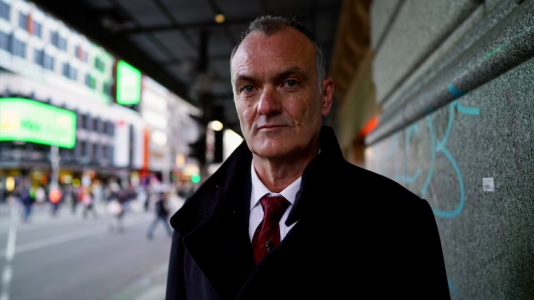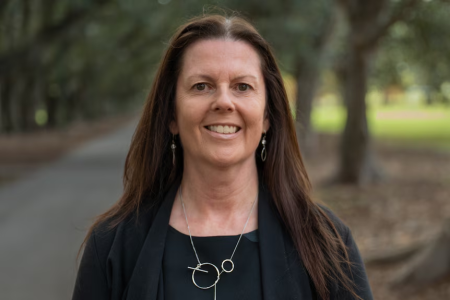'Boeing 737' full of Aussies dying of drug overdoses every month, researchers say
By
ABC News
- Replies 8
There have been more than 2,000 fatal overdoses in Australia for the tenth year in a row, according to a new analysis by the Penington Institute.
The non-profit drug research and advocacy group's CEO, John Ryan, said an early preview of its annual overdose report, due later this year, revealed there was 2,272 fatal overdoses in 2023, equating to an average of 189 per month.
"We're losing the equivalent of a Boeing 737 full of Australians every month," he said.
"The overdose toll has long exceeded the road toll … it's a huge problem that gets very little attention compared to other causes of death," he said.
The majority of deaths (77.8 per cent) were unintentional, the data showed.
The report broke down the most recent Australian Bureau of Statistics data on drug induced deaths, which is from 2023.
The analysis showed overdose deaths were down by about 6 per cent on the previous year, based on preliminary data which would be subject to updates over the coming months.
Mr Ryan said that drop was way too small.
"Even if the numbers dropped by 20 or 30 or 40 per cent, it's still too high … it's outrageous that we've got such a huge number of people that are dying."
The Penington analysis showed the rate of drug-induced deaths among Aboriginal and Torres Strait Islander peoples remained significantly higher (21.3 per 100,000 people) compared to non-Indigenous people (5.7 per 100,000).
Opioids such as heroin and pharmaceutical opioids remained the most common drug type involved in unintentional deaths, contributing to almost half of all deaths (43.9 per cent), according to the report.
Stimulant drugs such as methamphetamine increased by 2 per cent, overtaking benzodiazepines as the second most common drug type involved in unintentional fatal overdoses.
Amanda Roxburgh, a senior research fellow and clinical psychologist at the Burnet Institute, said Australia was a major destination for methamphetamine.
"It's relatively cheap to buy and it's really readily available," she said.
Dr Roxburgh, who was not involved in the Penington Institute report, said while there have been increasing use and harms related to cocaine, that was limited because cocaine was much more expensive.
She said crystal methamphetamine was now the predominant stimulant drug used in Australia, and it was often highly potent.
"We're not only seeing increases in deaths related to methamphetamine but we're also seeing increases in the hospitalisations," she said.
'Absolutely tragic'
Dr Roxburgh said drug-related deaths involving stimulants, which increase heart rate and blood pressure, often involved cardiac events such as heart failure, blockages to major arteries and heart attacks.
Opioid overdoses usually involved depression of the respiratory system, which sees a lack of oxygen to the brain.
Dr Roxburgh said overdoses often involved both kinds of drugs.
Most drug overdoses involved more than one drug.
Mr Ryan said it was not just illegal drugs involved in overdoses, but prescription opioids and benzodiazapines as well.
He said that was something he had personal experience of.
"The daughter of a friend of mine who went through a messy divorce ended up on benzodiazepines to manage the stress and anxiety.
"One night she drank a bit more red wine than usual, fell asleep on the couch and was found dead the next day.
"That's an absolutely tragic example of a woman with two young children who died from a combination of prescription pharmaceuticals and alcohol."
Mr Ryan said not only were most drug overdoses accidental, but they also extended to a demographic beyond injecting drug users and those using illicit street drugs.
"Many of these deaths are occurring in private homes and often it's lounge rooms in suburbia and regional and rural towns," he said.
Suzanne Nielsen, from the Monash Addiction Research Centre, said counterfeit prescription drugs were an issue increasing the risk of overdoses.
"We know that these fake or falsified pharmaceuticals look very similar to the real thing. Even pharmacists wouldn't necessarily be able to pick them apart immediately," she said.
Professor Nielsen said such drugs were available online and made in illegal labs.
"We've got very used to buying things online, but when it comes to pharmaceuticals, it's really not safe," she said.
Professor Nielsen said many illegal drugs, including fake pharmaceuticals, could contain powerful synthetic opioids including fentanyl and nitazenes, some of which were "100 times more potent than heroin".
Professor Nielsen said nitazenes have also turned up in drugs such as cocaine, ketamine and MDMA, which can leave people particularly vulnerable to opioid overdose because their presence was unexpected.
In Melbourne last year, four men died after taking drugs laced with nitazenes.
Renewed call for greater harm reduction
The Penington Institute is a not-for-profit drug policy research group with a focus on reducing overdose deaths and drug related harm, and advocates for decriminalisation and regulation of cannabis in Australia.
Mr Ryan said overdose deaths were preventable and the high numbers of these deaths each year highlighted the need for a national overdose strategy that focused more on harm reduction and less on policing.
He said only a small amount of funding went to harm reduction such as overdose education, opioid overdose withdrawal drug naloxone, drug testing and safe injecting facilities, and with a much bigger share went to law enforcement.
"We've got a real mismatch between what the evidence shows and what government is doing," he said.
He called on the government to implement a community education campaign, including to help people understand the signs of overdose like unusual snoring or gurgling sounds.
"That … is often actually the sign of an overdose and there's many deaths that result from people not knowing the signs of an overdose, let alone knowing how to response to that."
In a statement a spokesperson for the federal Department of Health said the National Drug Strategy provided a "commitment to harm minimisation through a balanced adoption of evidence based demand, supply and harm reduction strategies".
The spokesperson said the government has subsidised opioid dependence treatment medicines through the Pharmaceutical Benefits Scheme and was investing $377 million over four years for those treatments to be delivered via community pharmacies.
The statement also highlighted the government's ongoing commitment the Take Home Naloxone program which gives Australians free access to the drug which temporarily reverses the effects of an opioid overdose.
Written by Rachel Carbonell and Caitlyn Gribbin, ABC News.









